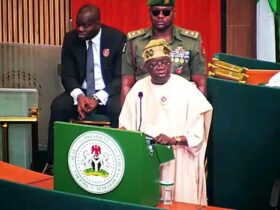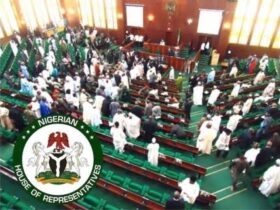
In the face of escalating costs for goods and services nationwide, the Nigeria Labour Congress (NLC) has declared its commitment to ensuring that the upcoming negotiations for the national minimum wage in 2024 reflect the current cost of living.
The NLC expressed concern over the increased hardship faced by workers, particularly after the government’s removal of fuel subsidies.
Addressing participants at the 19th edition of the NLC’s Harmattan School in Abuja, President Joe Ajaero emphasized the need for governments to recognize the extreme difficulties in life and living conditions for both formal and informal sector workers.
He attributed the challenges to the removal of petroleum product subsidies, which worsened the plight of working people, leading to heightened inflation, increased inequality, and growing poverty.
Ajaero, represented by Deputy President Benjamin Anthony, highlighted the importance of a well-motivated and well-remunerated workforce for national development.
Anticipating the 2024 minimum wage negotiations, he urged stakeholders to collaborate in determining a wage that aligns with the current cost of living.
The NLC president underscored the long-term impact of neoliberal economic policies, dating back to the Structural Adjustment Programme (SAP) in the mid-1980s, which disrupted societal pillars and reduced public spending on social services.
He called for collaboration with various segments of society to engage with governments at all levels and address the challenges faced by workers and the poor.
Ajaero also addressed the labor dispute between organized labor and the Imo state government, emphasizing the need for resolution through addressing labor issues, reinstating workers labeled as ‘ghost workers,’ clearing outstanding salaries and pensions, and bringing back victimized workers.
NLC General Secretary Emma Ugboaja echoed the sentiments, expressing concern about the unbearable situation for workers, including delayed salary payments.
He stressed the unusual nature of salary payments becoming subjects of collective bargaining, emphasizing the urgency of addressing the issue.
READ ALSO: “For Over 3 Years, Workers In Imo State Have Been Without Salaries” -NLC
The Harmattan School’s theme, “Building Workers Skills for Policy Engagement,” aligned with the NLC’s goal to equip workers with the necessary skills for active participation in policy discussions.
Ugboaja noted the school’s scale-down due to funding constraints resulting from the removal of fuel subsidies.
Chairman of the Federal Capital Territory chapter of the NLC, Stephen Adalo Knabayi, emphasized the timeliness of the theme, considering the evolving landscape in the labor sector.
Meanwhile, the Country Director of the International Labour Organization (ILO), Vanessa Phala, encouraged the NLC and other trade unions to engage actively in the implementation of the Abidjan Declaration, focusing on priorities such as productivity growth, skills development, social protection, gender equality, just transition, decent work, and reducing inequalities.
Phala commended the NLC for its commitment and capacity to address trade, investment, and decent work issues.








Leave a Reply